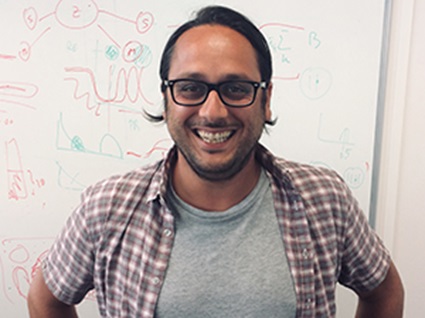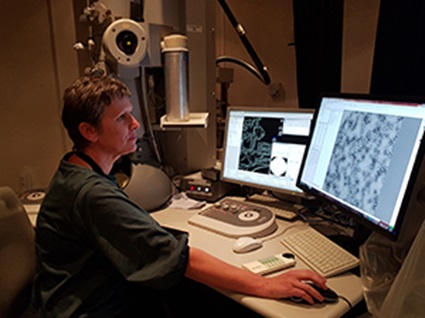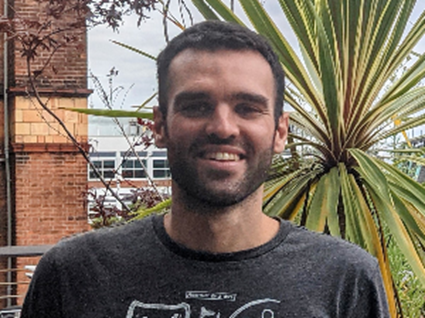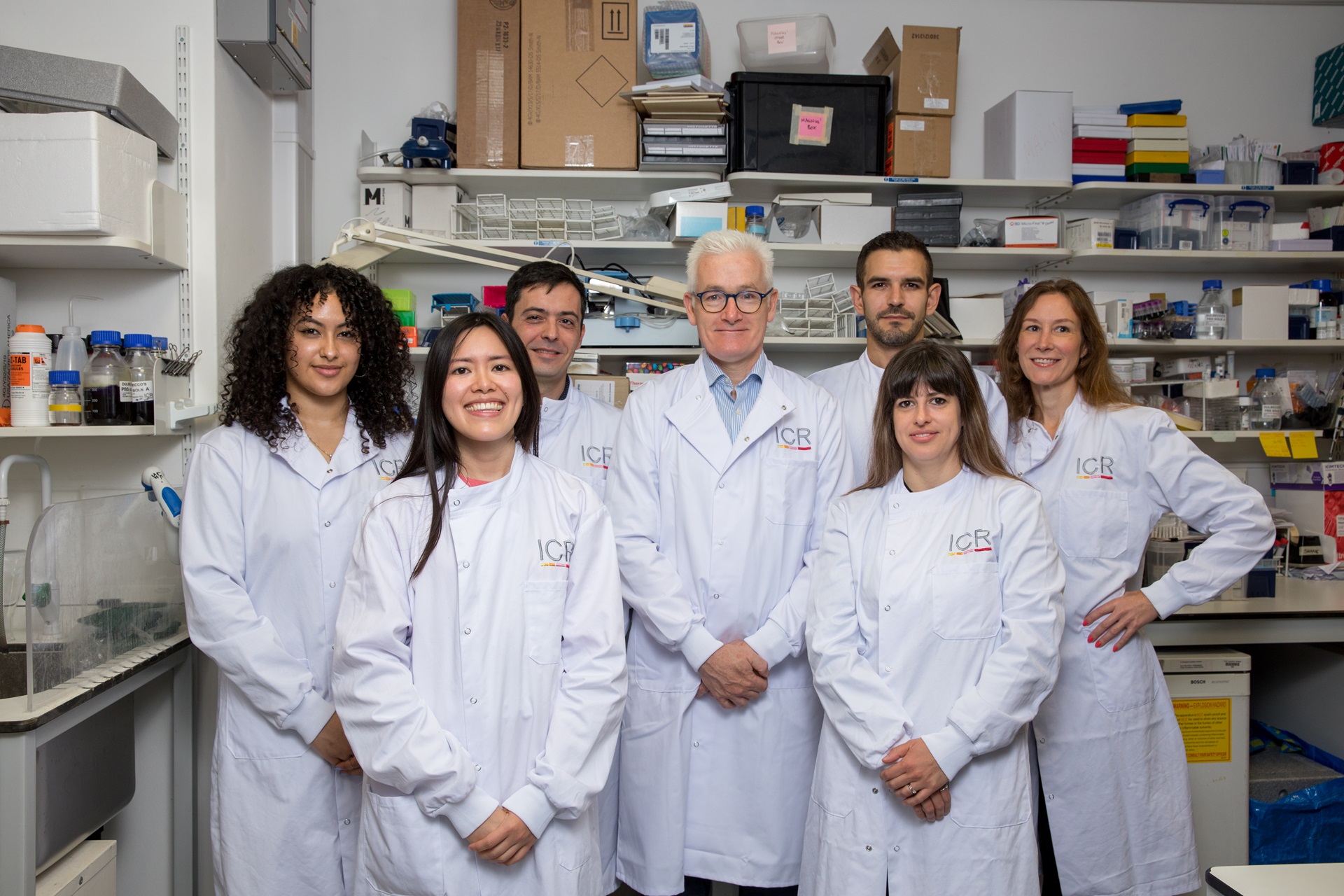Research scientists and scientific support
To join the ICR you’ll be a talented scientist looking for the next step after your initial postdoctoral studies. You’ll be ready to start leading a team independently under the mentorship of a leading senior scientist.
Research teams also include staff scientists and a number of specialist research roles such as bioinformaticians. Some senior staff scientists may run part of a team, specialise in a particular area of research within a team or work as part of a scientific service.
Our Heads of Division will be pleased to have an informal chat – you can find their contact details on our Division pages.
What we offer
As an integral part of the ICR’s faculty, you’ll receive additional start-up support (typically a postdoctoral researcher and one PhD student) and the help you need to find your feet and recruit your new team.
You will receive dedicated support in gaining further grant funding and establishing your own programme of independent research as you make the journey towards joining our permanent Faculty.
You will also have access to support networks, mentoring, career development opportunities and tailored training.
We support our scientists with state-of-the-art platform technologies and expert facilities staff, providing cutting-edge facilities for microscopy, imaging, sequencing, proteomics, X-ray crystallography and much more.
Scientific support
We employ a network of scientific officers and laboratory managers to support our researchers. These come from a variety of backgrounds and may hold responsibility for managing scientific projects, people, resources and budgets. Many are scientifically trained to PhD level, while others hold a first degree in a scientific discipline and may also hold professional management qualifications.
Laboratory managers most often come from a scientific background and have responsibilities for maintaining efficient, tidy and safe laboratories, resolving problems and introducing new systems to improve efficiency within labs. They also organise the delivery and repair of equipment, ensure decontamination procedures are carried out, organise laboratory supplies and manage budgets.
Employee stories

Dr Giulio Caravagna

Dr Fabienne Beuron

Dr Federico Tidu

Dr Fatemeh Ahmadi Moughari
Vacancies at the ICR
Postdoctoral Training Fellow - Thoracic Oncology & Immunotherapy Group
Under the guidance of Dr Astero Klampatsa, we are seeking to recruit a Postdoctoral Training Fellow to lead a research project targeting the mesothelioma solid tumour microenvironment with CAR-T cell therapy. The successful candidate will join the Thoracic Oncology & Immunotherapy Group, led by Dr Klampatsa, which works on development of CAR-T cell strategies for thoracic malignancies, as well as immunology-based projects in mesothelioma. Key responsibilities of the successful candidate include: a) to design and engineer novel CAR constructs using viral and non-viral gene delivery methods, b) undertake the preclinical testing of the developed CAR-T cell therapies in vitro and in vivo in mesothelioma mouse models via an array of functional assays, flow cytometry, PCR, qPCR, and Western blotting, c) lead the analysis of experimental data and interpretation of results, d) assume some lab management duties. About you The successful candidate must have: Educational Background: A Ph.D. in Immunology, Biotechnology, Cell Biology, Molecular Biology, or a closely related field is required. Candidates who are nearing completion of their PhD may apply, but confirmation on awarded PhD is required within 6 months of employment. Technical Expertise: Proficiency in primary T cell isolation, culture, and genetic modification. Prior experience with viral transgene delivery. Strong foundation in molecular biology techniques. Hands-on experience with multicolour flow cytometry. Demonstrated experience with in vitro functional assays. Prior experience with in vivo models. Problem-Solving Skills: Excellent analytical and problem-solving abilities with a proven track record of troubleshooting experiments. Communication: Strong written and oral communication skills, with the ability to present complex scientific concepts clearly and concisely. Preferred Qualifications Postdoctoral or industry experience in a CAR-T cell therapy or immuno-oncology/immunology setting. Knowledge of CRISPR/Cas9 gene editing. Proficiency in bioinformatics tools for data analysis. Knowledge of Good Laboratory Practices (GLP). The ICR has a workforce agreement stating that Postdoctoral Training Fellows can only be employed for up to 7 years as PDTF at the ICR, providing total postdoctoral experience (including previous employment at this level elsewhere) does not exceed 7 years. For general information on Postdocs at The ICR, more information can be found here. Department/Directorate Information The Division of Cancer Therapeutics brings together a wide variety of disciplines, including cell and molecular biology, pharmacology, tumour modelling, computational and structural biology, and medicinal chemistry, in order to select promising drug targets, design effective prototype drugs and biomarkers, and develop strategies to counter drug resistance. Find more information here: https://www.icr.ac.uk/research-and-discoveries/icr-divisions/cancer-therapeutics What we offer A dynamic and supportive research environment Access to state-of-the-art facilities and professional development opportunities Collaboration with leading researchers in the field Competitive salary and pension We encourage all applicants to access the job pack attached for more detailed information regarding this role. For an informal discussion regarding the role, please contact Dr Astero Klampatsa via Email: [email protected]
Higher Scientific Officer - Experimental & Translational Theranostic
Under the guidance of Dr Kathy Chan, we are seeking to recruit a talented and motivated Higher Scientific Officer to join the Experimental and Translational Theranostic group at the Centre for Cancer Imaging, Sutton. The research focuses on the development of next-generation ‘radiotheranostics’ – whole-body radionuclide-based imaging and therapeutic tools for cancer detection and treatment, and explore biological effects of radionuclide therapy to identify druggable targets and help develop novel therapeutic strategies to fight cancer. This position will provide excellent opportunities to interact within a multidisciplinary environment of staff within imaging, radiotherapy, drug development and molecular pathology, and explore new avenues of research. About you The successful candidate must have a PhD in cancer biology, molecular biology, radiochemistry, medicinal chemistry or a related discipline. A background in in vitro and in vivo radiobiology is essential. Experience in immuno-oncology is desirable. Department/Directorate Information The candidate will work in the Experimental and Translational Theranostic Group within the ICR Division of Radiotherapy and Imaging, which provides an integrated environment for multi-modality pre-clinical imaging, co-locating 7T and 1T MRI systems, a PET/SPECT/CT system, multispectral optoacoustic and ultrasound imaging platforms, bioluminescence imaging systems and micro-CT. What we offer A dynamic and supportive research environment Access to state-of-the-art facilities and professional development opportunities Collaboration with leading researchers in the field Competitive salary and pension We encourage all applicants to access the job pack attached for more detailed information regarding this role. For an informal discussion regarding the role, please contact Dr Kathy Chan via Email on [email protected].
Scientific Officer - Myeloma Biology and Therapeutics
Under the guidance of Dr Chalotte Pawlyn, we are seeking to recruit a Scientific Officer to contribute to our work understanding mechanisms of resistance to therapies used to treat the bone marrow cancer myeloma. The successful candidate will play a key role in the isolation of myeloma cells from patient samples and downstream processing, experiments and storage. Additionally the SO will support a range of ongoing molecular and cell biology experiments using cell lines and primary samples within the team, including cell viability assays, flow cytometry, qPCR and Western blotting. There will be opportunities to gain experience in novel techniques and explore new avenues of research. About you The successful candidate must have: A degree in a biological science Proficiency in cell culture and a range of cell/molecular biology techniques Enthusiasm to work in an interdisciplinary environment towards the goal of developing improved cancer therapeutics Department/Directorate Information Myeloma Biology and Therapeutics Group Dr Charlotte Pawlyn's team Myeloma Biology and Therapeutics focuses on identifying and validating therapeutic targets for the treatment of immunomodulatory drug resistant and high-risk multiple myeloma. Myeloma is a bone marrow cancer and the second most common haematological malignancy. Immunomodulatory drugs are the “prototype” of targeted protein degradation approaches. Outcomes for patients have improved over the last few decades following the introduction of proteasome inhibitors and immunomodulatory agents. However, patients almost all inevitably relapse and understanding the mechanisms of resistance to these commonly used agents is key to improving outcomes. The team sits within the Division of Cancer Therapeutics which has an unrivalled track record at discovering novel cancer treatments and biomarkers. Their work has made The Institute of Cancer Research the world’s most successful academic centre at discovering new cancer drugs. We also work closely with the Centre of Protein Degradation What we offer A dynamic and supportive research environment Access to state-of-the-art facilities and professional development opportunities Collaboration with leading researchers in the field Competitive salary and pension We encourage all applicants to access the job pack attached for more detailed information regarding this role. For an informal discussion regarding the role, please contact Charlotte Pawlyn via Email on [email protected]
